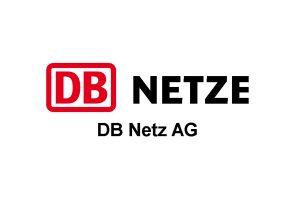Project: PRISMA Re-Design
Time period: since 2014
Represented Roles: Test Manager, Tester, Rollout Manager, Project Manager, IT Security Specialist, IT Architect (m/f/d)
The company:
DB Netz AG is a fully owned subsidiary of Deutsche Bahn and, as a rail infrastructure company, operates around 87.5% of the German rail network, which means a route network of just under 33,300 kilometers. DB Netz AG is thus Europe’s largest rail infrastructure provider.
The challenge:
DB Netz's dispatching systems have reached their limits in terms of technology, architecture and scaling. Consequently, the systems must be replaced by newly developed applications based on current technologies, standards and architectures. As this task cannot be realized by one project due to its complexity, several projects are necessary for this purpose.
The PRISMA Re-Design program combines the projects into a single unit in the sense of multi-program management or project portfolio management and controls them in terms of adherence to deadlines, target achievement, quality, risks, dependencies and budget.
Scheduling in the operations centers is essential for smooth operations with as few delays as possible. To ensure that the resulting high requirements (asset ownership, safety, technology) are fully supported by the corresponding application systems in the future, the program and its associated projects were initiated with the aim of establishing a future-proof dispatching system as well as the necessary peripheral systems or additional subsystems.
The extensive and complex IT infrastructure requires, for example, with regard to test coordination, control via multiple projects within the program with a wide variety of approaches, from conservative approaches such as the waterfall method to agile methods with Scrum and SAFe.
The solution:
In order to achieve the project goal, sound and migratable procedures in the area of technical tests must be established as part of the test coordination (complete spectrum of e.g. load & performance tests via failover tests to defect re-tests). These must be resilient and stable, as the applications are subject to strict SLAs and are relevant to the operation of rail traffic.
This includes the points of test strategy, toolevaluation, test data management and test execution. The transfer of a project-related test to the basis of a platform test must always be considered and possible.
Due to the large and complex individual projects, the technical requirements, the high data volumes and the time scope, the QA lifecycle is based on a very high degree of automation (End2End), which relates to the sub-points of implementation, execution through to final reporting and defect management.
The project success:
These quality assurance measures, ensure that the individual systems of the overall program meet the requirements of daily operations. This means providing users with a stable and efficient system for nationwide rail traffic scheduling based on the modernized components through a valid technical testing process.

